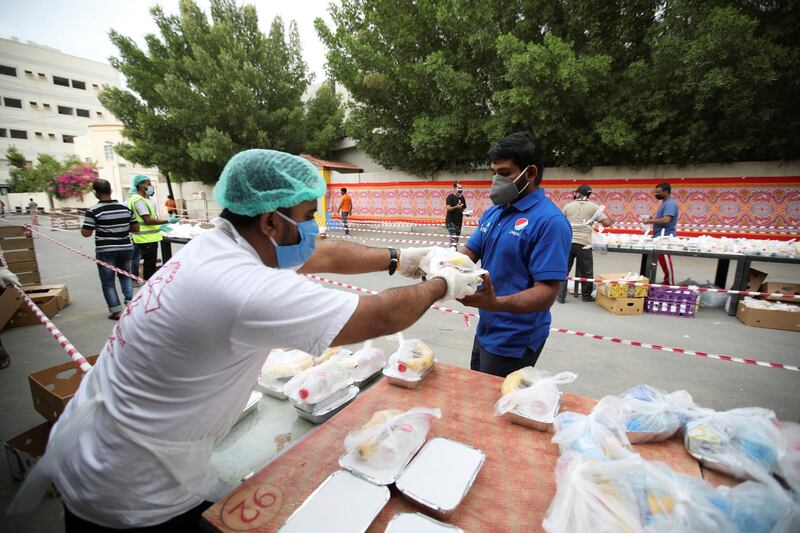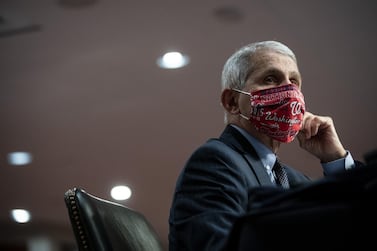Testing potential patients early and quickly isolating those who contract Covid-19 are key lessons from Bahrain's response to the pandemic.
Experts and officials discussed how the country was one of the first in the world to mobilise in response to reports of a new virus originating in China. Bahrain took its first steps to set up a task force in late January less than a month after the first reported death in Wuhan.
One of those involved in the data-driven public health response told a webinar hosted by Bahrain's ambassador in London that a main factor in the 26 deaths the country had experienced was that the victims had presented late in the cycle of infection.
Lieutenant Colonel Dr Manaf Al Qahtani, a member of the National Taskforce, told the briefing that Bahrain was using its comprehensive approach to tailor its control system for the pandemic. "We are small in size, but the power of the people of Bahrain is supporting each other to combat the coronavirus.
“The major cause of death is late presentation, this is not a flu-like illness; come, we will test you and treat you,” he said, and added that the authorities were working in foreign embassies to contact members of the labour force to track and trace the illness.
In contrast to the World Health Organisation (WHO), Bahrain’s advice is that asymptomatic spreading is a threat to the public. “Our data showed 44 per cent of those asymptotic were infectious,” he said.
Organised by Sheikh Fawaz bin Mohammed Al Khalifa, Bahrain's ambassador to the United Kingdom, the seminar heard that the country is a world leader in testing, reaching one fifth of its population.
Sheikh Fawaz said he was keen to promote international collaboration with Bahrain as it handled the ongoing outbreak. Attendees included Khalid Mahmood, the senior UK member of parliament, and prominent figures in the medical community.
A total of 367,764 tests have been carried out in Bahrain, where the population is less than two million. There have been 15,120 confirmed cases of Covid-19 and the recovery rate has reached 64 per cent.
Following the establishment of the national task force, Bahrain ramped up procurement of medicines and medical equipment.
According to Waleed Khalifa Al Manea of Bahrain’s Ministry of Health, fast action on testing, including mobile testing units deployed to homes, shopping malls and mosques, helped build a strong picture of where outbreaks were occurring.
By February 26 the country had asked schools and universities to close and safeguarded workers accommodation and other vulnerable sites such as prisons.
“We don’t have a general lockdown of the country,” he said.
"We have enough information about the population because we started very early.”
John Ashton, a British professor who consulted with Bahrain's response team, said the country compared very well on an international basis.
“The establishment of the task force and war room and the links to the epidemiologists are the things that stand out to me,” he said. “The commitment to openness, transparency and good public communications has really set a standard for the international community.”







